Health Promotion and Disease Prevention
Tribal Nations have rich cultural practices that continue to promote the health and well-being of Tribal citizens. These diverse practices—which include everything from traditional games that promote physical activity to traditional foods that are naturally balanced and provide disease-preventing nutrition—sustained Native American communities for generations. Despite the long history of these practices, a few centuries of purposeful policies to harm, displace, and assimilate Tribal communities have had devastating health consequences, resulting in today’s extreme health disparities experienced across Indian Country.
Tribal communities experience a higher prevalence of several chronic diseases, and their burden of diabetes is greater than in any other racial and ethnic group. Diabetes and obesity are major risk factors for cardiovascular disease, heart attack, and stroke; according to USET’s 2014 Mortality Report, cardiovascular disease was the most common cause of death among Tribal citizens in the Indian Health Service (IHS) Nashville Area.
THPS (Tribal Health Program Support) staff work to promote healthy behaviors and prevent chronic disease by working with Tribal Nations to implement culturally grounded, community-driven programs that target risk factors for commercial tobacco use, diabetes, heart disease, and other chronic diseases. Additionally, we work to strengthen public health capacity and infrastructure at the Tribal Nation level to ensure that they are empowered to implement programs for their Tribal citizens and leverage their sovereignty to implement policies best suited to address the needs of their communities.
Chronic Disease Prevention: Good Health and Wellness in Indian Country
USET GHWIC 1903- Interactive Training Presentation: "Thriving Through Change" (12/07/2021)
This program was first launched by the Centers for Disease Control and Prevention (CDC) in September 2014. The primary purpose of this initiative is to reduce rates of death and disability from commercial tobacco use, diabetes, heart disease, and stroke; and reduce the prevalence of obesity and other chronic disease risk factors and conditions in Indian Country.
During the first five-year project cycle (2014-2019), we established strong collaborative partnerships with seven USET member Tribal Nations to build public health capacity and empower successful program implementation. We also provided technical assistance through training on enhanced program implementation, program expansion, sustainability, community engagement, and communication.
Some highlights of the program include:
- The Seneca Nation of Indians hosted a culturally relevant Certified Lactation Consultant Workshop, which was offered to federally recognized Tribal Nations across Indian Country.
- The Seneca Nation Health System purchased a Mamava Pod to ensure that Seneca Nation of Indians employees and patients of the Seneca Health Clinic have a clean, comfortable environment for breastfeeding.
- The Eastern Band of Cherokee Indians offered an annual summer camp for Tribal Nation youth that are at risk of developing diabetes.
- An incentive program titled “Veggie Bucks” was implemented by the Poarch Band of Creek Indians and Jena Band of Choctaw Indians. Tribal citizens utilized Veggie Bucks to purchase fresh fruits and vegetables at local farmers markets.
- The Alabama Coushatta Tribe of Texas installed raised garden beds for elders and home gardens for Tribal citizens.
- THPS partnered with GoodHealthTV® to increase health communication modes that provide health programming to 15 USET member Tribal Nations.
- All Tribal Nation partners completed Community Health Assessments and Sustainability Plans
Continuing funding, awarded in 2019, allowed us to further expand our partners’ programming, working towards promoting healthy behaviors and reducing chronic disease risk factors. This continued funding allowed us to partner with USET’s Office of Economic Development to provide funding for agriculture projects aimed at providing access to healthy foods with the Alabama-Coushatta Tribe of Texas and Shinnecock Indian Nation. Additionally, we are working with USET’s Office of Environmental Resource Management to provide education on food sovereignty and resources associated with traditional foods and canning.
Partner Tribal Nations
- Alabama-Coushatta Tribe of Texas
- Eastern Band of Cherokee Indians
- Jena Band of Choctaw Indians
- The Mohegan Tribe
- Penobscot Indian Nation
- Poarch Band of Creek Indians
- Seneca Nation of Indians
- Shinnecock Indian Nation
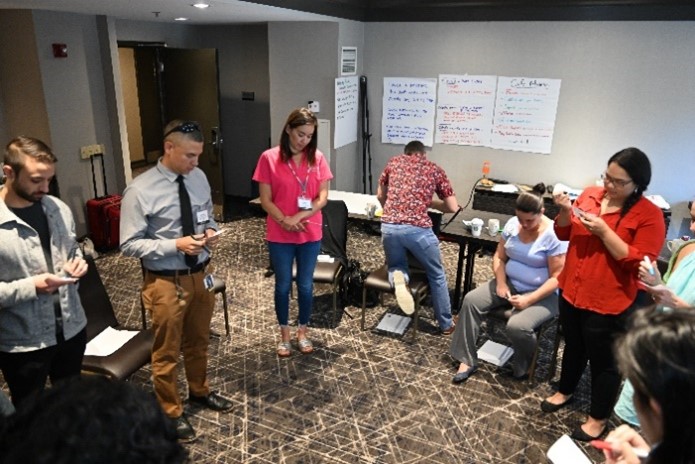
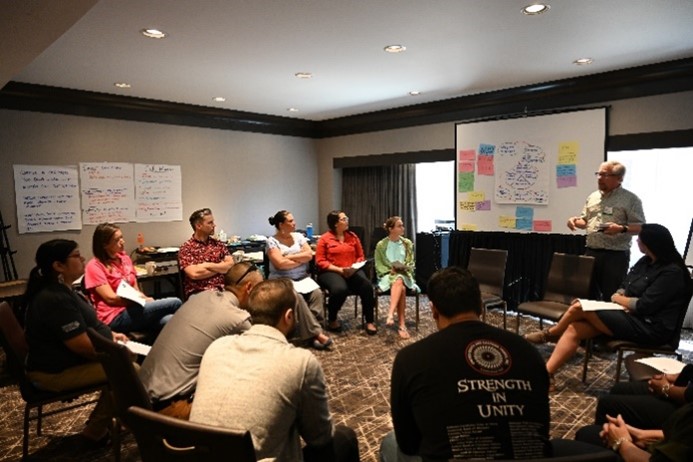
Tribal Nation Partnership Opportunity
We partner with up to four Tribal Nations each year to identify the strengths and gaps within their public health system. We have developed a Tribal Public Health Infrastructure Assessment (TPHIA) and Tribal Communication Assessment (TCA) to evaluate and increase public health infrastructure and capacity for both us and our member Tribal Nations.
Tribal Nation partner projects include:
- Identifying infrastructure, public health assets, and deficits to design, and implementing and growing health promotion and disease prevention (HPDP) programs.
- Addressing the needs identified through the TPHIA and TCA by planning and implementing HPDP programs, providing technical assistance, and sharing public health knowledge and communication materials.
- Creating a strategic plan to assist with identifying and applying for sustainable resources and funding opportunities.
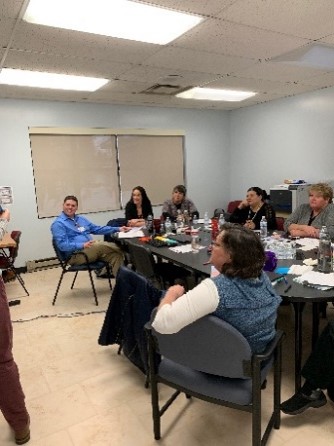
Partner Tribal Nations
Years 2-3
Mississippi Band of Choctaw Indians
Saint Regis Mohawk Tribe
Miccosukee Tribe of Indians of Florida
Year 4
Chickahominy Indian Tribe
Monacan Indian Nation
Mississippi Band of Choctaw Indians
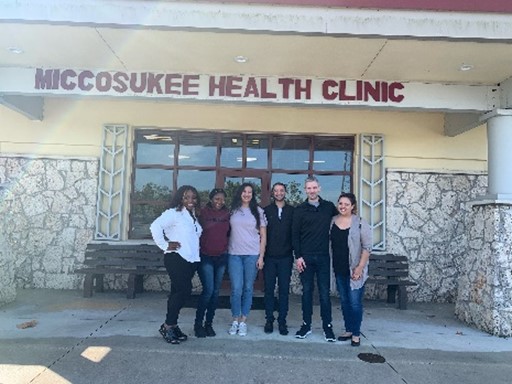
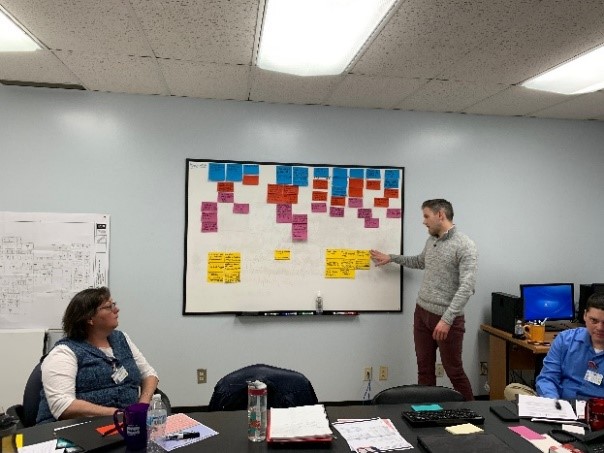
Communities of Practice
Our staff participate in frequent Community of Practice (CoP) meetings focusing on topics around:
- Data
- Evaluation
- Program Management
- Sub-Recipient Partnership Opportunity
- Administration
These collective learning practices take place internally, externally, collaboratively with other sectors within the Indian Healthcare System including TECs, Tribal Nations, Tribal Organizations, and Urban Indian Organizations. These meetings are a beneficial way for our community to facilitate knowledge sharing, problem-solving and share successes, challenges, and guidance for improvement. They also provide a terrific opportunity for developing partnerships, networking, and collaborating.